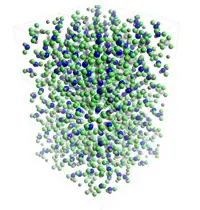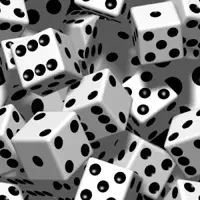|
TRANSLATE THIS ARTICLE
Integral World: Exploring Theories of Everything
An independent forum for a critical discussion of the integral philosophy of Ken Wilber
See also: "It's Just Love": Ken Wilber's Integral Spiritual Experience 2 Key Note
SEE MORE ESSAYS WRITTEN BY FRANK VISSER
Arguments
from Ignorance
The "Frisky Dirt" Discussion So Far
Frank Visser
Nobody understands the whole picture, and nobody needs to understand it in order to accept the exquisite plausibility of natural selection.
—Richard Dawkins
Since David Lane published his "Frisky Dirt: Why Ken Wilber's New Creationism is Pseudo-Science" essay on Integral World last month, many readers have sent their comments, some of which have been published—most notably those by Alexander Astin. What triggered Lane to write his essay were some statements made by Ken Wilber in the lastest issue of EnlightenNext concerning evolution. Wilber expressed his feeling that the evolution of the cosmos and of life on earth could ony be explained and understood by a Spiritual Force called love or Eros[1]:
I mean, think about it. At one point in history, there was nothing but atoms wandering around. And one day, several atoms got together and were just kind of sitting there, having a little tea party, when all of a sudden, a single membrane drops around them and they form a single molecule. All of these atoms become one molecule.
Now, it's really astonishing that universe would do this. Some think that this is some sort of chance, random mutation, but that, in fact, is exactly what it isn't. It's the opposite of chance or randomness.
It's evidence of a force that is pushing against randomness in the universe.

Not only the process of atoms becoming molecules, but also of these molecules becoming cells, organisms and conscious beings, for Wilber it's nothing less then "a miracle", "unbelievable", "without exception, is driven by love." And he concludes:
Now, Neo-Darwinian evolutionary theory holds that all these transformations upward were just the result of chance and randomness. But there is no way in hell that the universe went from atoms to Shakespeare out of random stabs. This is an extraordinarily driven process.
Let's ignore for the moment that there's a strange mixing up of the domains of physics and biology in this quote: atoms becoming molecules by a process of random mutation?
Neo-Darwinism Not A Theory of Chance
In many postings on this website, and in a long paper presented at last year's Integral Theory Conference, I have tried to demonstrate and document that evolutionary theory is definitely not a theory of chance.
To quote only a handful of evolutionary theorists about this "chance" issue:
It is grindingly, creakingly, crashingly obvious that, if Darwinism were really a theory of chance, it couldn't work.
—Richard Dawkins
An author who says, 'I cannot believe that the eye evolved through a series of accidents,' documents that he or she simply does not understand the two-step nature of natural selection.
—Ernst Mayr
"The theory of evolution says that life originated, and evolution proceeds, by random chance." There is probably no other statement which is a better indication that the arguer doesn't understand evolution.
—Mark Isaac, Talkorigin.org

Where mutation and variation may be random (some giraffes have longer necks, some shorter, and on average that evens out), selection or elimination is decidedly non-random (it is the long-necked giraffes that got selected, not the short-necked ones). This important distinction is largely lost on Wilber.
And incidentally, "random" has a specific meaning in this evolutionary context: it does not mean uncaused or erratic or unpredictable, it means that variations don't have foresight, for example that because it is useful to have longer necks, mutations would tend in that direction. Never happens that way.
So clearly, Ken Wilber sets up a straw man when arguing against neo-Darwinism. If evolutionary is about chance and chance alone, and obviously chance can't deliver, then yes, "something other then chance is pushing the universe." Except that it isn't.
I know, I know, it gets boring, but I will probably have to repeat it till the end of times: Ken Wilber misrepresents a major field of science. If that's the way integral reports on science to its audience of mostly laymen readers (when it comes to evolutionary theory at least), prospects for integral theory getting academic status are grim indeed.
Lane commented on Wilber's eulogy of the mysteries of existence, which did not show even the faintest trace of an attempt to understand these natural processes, by showing that evolutionary theory includes both an element of chance and processes of inheritance and selection, which are essentially non-random.
Further, he showed that atoms becoming molecules isn't as mysterious as Wilber wants us to believe. These steps can be explained using basic principles of organic chemistry—ironically the only field of science Wilber has been officially trained in.
Lane concludes, refering to Wilber equation of evolution with chance:
Ken Wilber is once again using a straw man argument to bolster his contentious idea that some other force (love!) is what makes the world go round and moths turn into butterflies, and meditators into bodhisattvas. Evolutionists do not hold that chance and chance alone is what allows for the emergence of new and better adapted forms on terra firm.
Indeed, the very fact that Wilber would persist in using this same canard over and over again suggests something inherently dishonest in his approach to the subject.
In one of his blog postings in 2007, Wilber quoted from an email exchange he had had with Alexander W. Astin, Allan M. Cartter Professor Emeritus & Founding Director of the Higher Education Research Institute in Los Angeles.
Astin joined Wilber in his belief that evolutionary theory's "random mutations" is a bad explanation for the complexity of organisms. In fact, he suggested that this pseudo-explanation only served to hide our ignorance as to what is really going on during mutations.
Ironically, both Wilber and Astin unknowingly agree with Dawkins that "chance" is not a good explanation for the emergence of evolutionary complexity!
Contrary to Wilber and to his credit, Astin responded to Lane's essay in three installments (here, and here, and here), upon which Lane wrote two further essays: "Random Mutations in Molecular Biology" and "Faith in Physical Causes". I responded twice to Astin but the current essay summarizes my position.
Where has this discussion brought us so far?
The Search for Deeper Causes

Astin's main point is that, whatever science has found out about the way mutations may be caused, we still don't know much about the exact mutations that have caused, say, a human eye during animal and human evolution. And given that we don't yet know all these details, he optimistically opines:
Why not postulate the guiding hand of some deity?
This argument is known as the "God of the Gaps": whatever we (as of yet) don't understand must therefore be caused by the Divine.
Of course, Astin knows very well that this isn't really a feasible scientific proposal (he isn't a defender of Intelligent Design, which tries to give equal status to creationist theories). What he does have in mind is cast doubt on the confidence of science that at the end of the day these things can be sorted out with physical explanations. What Astin is really interested in are the deeper causes of mutations and hence of evolutionary changes.
This may be an act of faith, but then again, according to Astin, science holds a faith as well: the belief that everything can be explained with physical means—for which there is no sufficient evidence, or so Astin maintains.
Both Wilber and Astin resort, in the end, to Arguments from Ignorance, in that they state: we know so little of the processes of nature, and of the causes for mutations in particular, that it is reasonable to suggest that one of these causes may be spiritual or Divine. (which one of these causes in particular and specifically is never spelled out, unfortunately).
To substantiate his claims, Astin offers the metaphor of Hamlet being written by Shakespeare—and therefore, by a conscious entity—and not only by the muscles of his hands. Or, of water being heated to boiling point, not only because the water's temperature has been increased, but because some experimenter intentionally turned on the flame.
But can we really and unproblematically go from the example of a human being moving his or her body to Nature being moved by some conscious, loving force? Though it is highly debatable if this metaphor of a mind guiding a body can be applied to natural evolution (is Nature, after all, God's Body, as Spinoza claimed?), there is is a real and much more interesting meaning to the distinction between proximate and distant or ultimate causes, especially within the context at hand of evolutonary phenomena.
None other then the late evolutionist Ernst Mayr spelled out the difference between proximate and ultimate (or evolutionary) causes within the context of evolutinonary theory. In one of his textbooks on biology This Is Biology (1997), which devotes much space to the philosophy of science in general and the philosophy of biology in particular, he wrote on the topic of causation in biology:
Proximate and ultimate causations
Every phenomenon or process in living organisms is the result of two separate causations, usually referred to as proximate (functional) causations and ultimate (evolutionary) causations. All the activities or processes involving instructions from a program are proximate causatons. This mean particularly the causation of physiological, developmental, and behavioral processes that are controlled by genetic and somatic programs. They are answers to "How?" questions.
Ultimate or evolutionary causations are those that lead to the origin of new genetic programs or to the modification of existing ones—in other words, all causes leading to the changes that occur during the process of evolution. They are the past events or processes that changed the genotype. They cannot be investigated by the methods of chemistry or physics but must be reconstructed by historical inferences—by the testing of historical narratives. They are usually the answer to "Why?" questions.
It is nearly always possible to give both a proximate and an ultimate causation as the explanation for a given biological phenomenon. For instance, for the existence of sexual dimorphism one can give either a proximate physiological explanation (hormones, sex-controlling genes) or an evolutionary explanation (sexual selection, aspect of predator thwarting). Many famous controversies in the history of biology came about because one party considered only proximate causations and the other party considered only evolutionary ones. (p. 67)
Incidentally, please note the integral flavor of this quote from Mayr, who tries to include different approaches and explicitly calls his approach "holistic" (p. 17-18), against the gene-centered reductionists. He even introduces the concept of "intregron" (p. 19-20), quoting from Francois Jacob, who used this concept in his The Logic of LIfe (1973)—fully comparable to Wilber's concept of the holon.
Mayr continues, in an illuminating paragraph on "How?" and "Why?" questions:
"How?" and "Why?" questions
"How?" is the most frequent question in the physical sciences, and it led to the discovery of the great natural laws.... "Why?" questions deal with the historical and evolutionary factors that account for all aspects of living organisms that exist or have existed in the past.
Why are humming birds restricted to the New World? Why are desert animals usually colored like the substrate? Why do insect-eating temparate zone birds migrate in the fall to subtropical or tropical areas? Such questions, usually relating to adaptations or to organic diversity, have traditionally referred to as the search for ultimate causations.
"Why?" questions did not become scientific questions until after the proposal of evolution and more particular until after 1859 when Darwin proposed a concrete mechanism for change: natural selection.
Very few people realize that it was Darwin who was responsible for making "Why?" questions scientifically legitimate. (p. 115-116)

So there's real value in distinguishing between proximate and distant causes, without the need to speculate about metaphysical or spiritual forces driving evolution, let alone to denigrate science for its efforts to understand nature's physical causes. Nor to resort to the ambiguous and dubious concept of an "intra-physical telos" or Eros driving evolution, which is Wilber's proposed solution. And these deeper causes need not necessarily belong to the domain of quantum physics, as Lane suggests.
And in fact, it's not really a problem for Darwinism that we don't yet know the details of what causes mutations and what mutations are responsible for the emergence of complex organs or organisms. (After all, Darwin knew nothing of these details; it did not prevent him from stumbling on the truth of evolution by natural selection). Whatever causes variations among organisms, natural selection can act on this variation and yield ever more complex and successful organisms.
As Richard Dawkins eloquently wrote in his The Greatest Show on Earth (2009), explaining in detail how relatively simple genetic changes can lead to large morphological transformations in the organism:
Nobody understands the whole picture, and nobody needs to understand it in order to accept the exquisite plausibility of natural selection.... The whole may be baffling and mysterious in practice, but there's no mystery in principle, either in embryology itself, or in the evolutionary history by which the controlling genes came to prominence in the gene pool. (p. 250)
NOTES
[1] EnlightenNext (2011, Issue 47). See also: "It's Just Love", Ken Wilber's Integral Spiritual Experience 2 Key Note, IntegralLife.com (Vimeo).
|

 Frank Visser, graduated as a psychologist of culture and religion, founded IntegralWorld in 1997. He worked as production manager for various publishing houses and as service manager for various internet companies and lives in Amsterdam. Books: Ken Wilber: Thought as Passion (SUNY, 2003), and The Corona Conspiracy: Combatting Disinformation about the Coronavirus (Kindle, 2020).
Frank Visser, graduated as a psychologist of culture and religion, founded IntegralWorld in 1997. He worked as production manager for various publishing houses and as service manager for various internet companies and lives in Amsterdam. Books: Ken Wilber: Thought as Passion (SUNY, 2003), and The Corona Conspiracy: Combatting Disinformation about the Coronavirus (Kindle, 2020). 


